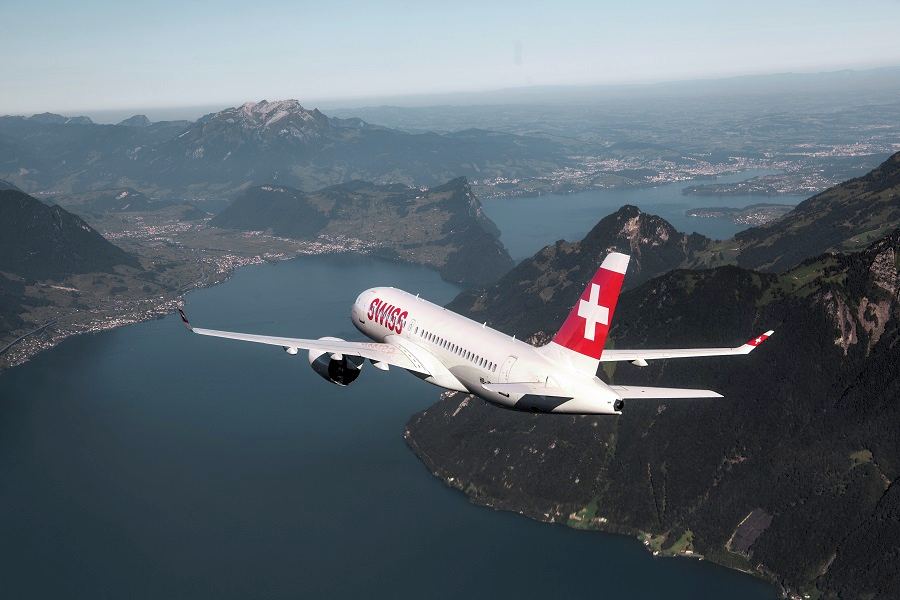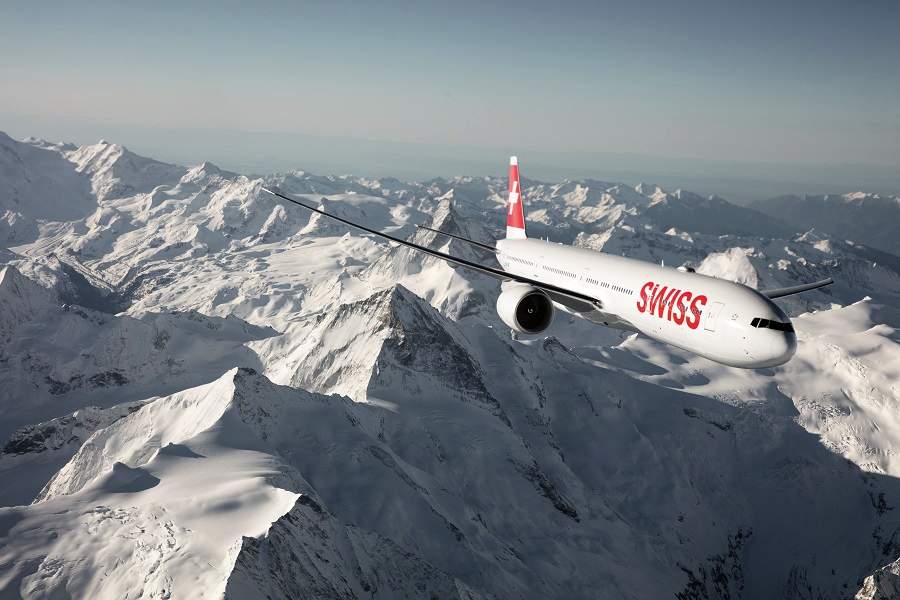In a cost-cutting measure for this crisis, Swiss International Air Lines (SWISS) will use only its most efficient narrowbody aircraft this winter. This means that they will temporarily put their 28 A320s in storage. So they will fly short and medium haul with their Airbus A320/A321neo fleet, plus the A220. However their long-haul fleet is also getting a work-out.
The company recently announced its financial results for the first nine months of 2020. Under the circumstances, SWISS’ management believe that the airline has performed reasonably well. The company’s revenue is at 61.8% decline compared to last year. As expected they show an operating loss.
But cost cuts and a stronger than expected summer performance mean that their third quarter losses are reduced. SWISS reports flying 40% of its planned programme in the summer. Seat load factor for the third quarter was 43%. But there was a big difference between short haul and long haul operations in this regard.

It is interesting to note that the company’s fleet and Switzerland’s position, allow for some unique opportunities and considerations. SWISS has taken delivery of a number of modern and efficient, LEAP-engined A320/321 aircraft. They have 25 of them on order, picking up the first A320 in February. They also have several A220 family aircraft (-100 and -300 models) that they have been operating for a couple of years already.
SWISS The Flag Carrier
SWISS has a less seasonal operation than some other European airlines, thanks to strong demand from winter holidaymakers. With partial or full lockdowns returning to Europe this winter, they can afford to park older single-aisle Airbus aircraft. But their long-haul fleet is still central to their operations.
The airline is Switzerland’s flag carrier. They cater to a lot of passengers in what they call the ‘visiting-friends-and-relatives’ category. So they have an important role for long-haul travel, even if their widebodies fly with plenty of empty seats. SWISS’ 43% overall load factor, is actually 71.5% for European flights. Widebody load factors aren’t mentioned, but will be well below 40%.

However these aircraft fly quite a lot of cargo in their hold. As we’ve seen previously, there is substantial demand worldwide for cargo services. So much so, that SWISS has been able to continue serving 16 out of 24 long-haul routes, with their passenger aircraft, even with few passengers on board. They will continue this over the winter, adding two more routes in March.
Early in 2020 SWISS announced the completion of the retrofitting of their A340s’ interiors. They very likely regret this now. But they also have A330s and Boeing 777s in the same role, and they will be using them. The airline is, like everyone else, in a challenging position. Despite high cargo demand their operations amount to only 25% of normal capacity. But with finances aimed at maintaining a survivable status over the next few months, SWISS hope that the summer will find them ready to bounce back.



